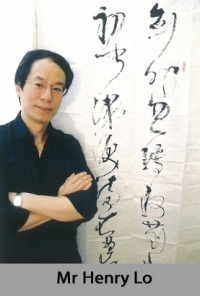Alumni
A Hotbed Of Rationality
A Hotbed Of Rationality
The early 1970s were marked by ferment on campus as students began asserting their rising political consciousness. Protests against Japan’s claim over the Diaoyu Islands and corruption in Hong Kong, disillusion with the colonial government, demands that Chinese be made an official language and a pro-China movement were all fuelling discussion and division at HKU and other campuses in Hong Kong.
Against that backdrop barrister Henry Lo (BA 1979) stepped into the Main Building in 1975 to take up studies in Philosophy and Political Science, and found himself swept up in the debates.
barrister Henry Lo (BA 1979) stepped into the Main Building in 1975 to take up studies in Philosophy and Political Science, and found himself swept up in the debates.
He joined the HKU Students’ Union and in 1977 became its president, taking a year off from studies to devote himself to his duties.
“Prior to my time, there were some student movements in Hong Kong that resulted in students becoming more aware of their responsibility towards their mother country and of course to society,” he says.
“As to the ‘how’, there were different approaches at that time. Some were quite dogmatic, biased or irrational.”
Mr Lo and his allies sought to tone down the heat on campus.
“We – the union, the cabinet and those associated with us – insisted on a more rational approach with which to seek to understand what a university education, life, are about,” he says.
“To understand China was not our sole concern as undergraduates at HKU. It should not be our sole concern. Our concern should be education and our future and our contribution towards humanity.”
The message was not easily digested. He faced sharp criticism and endured many long meetings to spread this message – “easily 10 hours”, he says.
A Hotbed Of Rationality
“One of the very memorable things at that time was that we met for long hours,” he says. “We had to resolve [matters] by way of votes at union council, that was the due process. And of course before we put things to vote we had very critical arguments where there were these different approaches to things.”
The debates extended to the University administration, too. Dr Rayson Huang was Vice-Chancellor and Mr Lo remembers they had a “frank exchange of views” over plans to raise tuition fees before the University came to the decision to spread out the increase over three years, at $100 per year.
The climate of debate and argument, which also existed on other university and college campuses across Hong Kong, started to diminish after China’s Open Door policy was announced in late 1978.
Mr Lo says his education as an Arts student influenced his approach as a student and later in life.
“The training we had was such that we would be inclined to truth seeking, to be reasonable, to be rational. Of course, rationality was not at the expense of passion.”
That ideal today takes physical form in his calligraphy, which seeks to capture the point where meaning and emotion meet – “The Unified Stroke”, as he called his 2008 exhibition at the University Museum and Art Gallery, where he finds order in disorder. Much as he helped to do during the tumultuous days of 1970s campus life.
Mr Henry Lo Hon Yiu graduated from HKU in 1979 with a BA in Philosophy and Political Science and is a practicing barrister in Hong Kong. He is currently President of the HKU Arts Alumni Association. He was President of the HKU Students’ Union in 1977, Member of the Court of HKU between 1987 and 2002, Deputy Chairman of Convocation of HKU between 1993 and 2002, and Chairman of the Senate Working Group on Communication, HKU, between 2001 and 2003.

